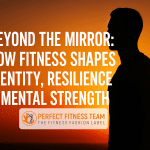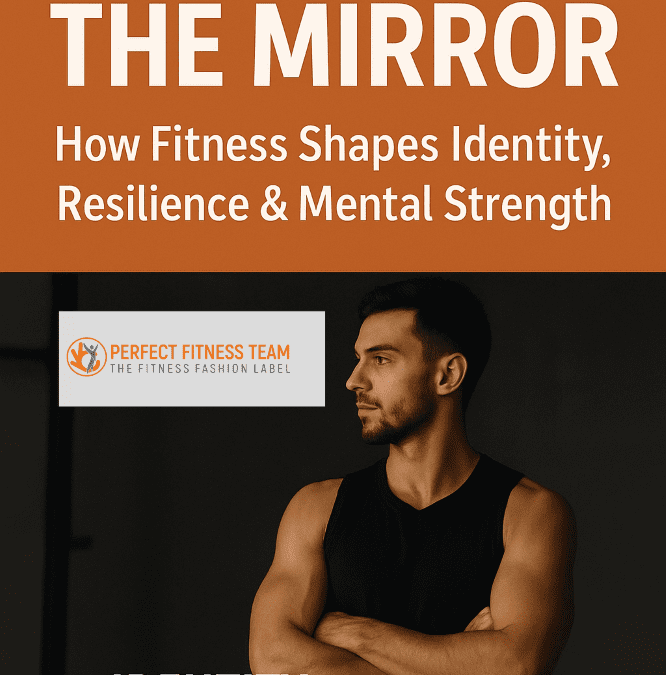


Beyond the Mirror: How Fitness Shapes Identity, Resilience & Mental Strength
October 11, 2025In the age of selfies, gym-mirrors and physique goals, it’s easy to think of fitness as purely a physical transformation: drop the kilos, gain the muscle, look the part. But we at Perfect Fitness Team believe—and growing research confirms—that fitness can be so much more. It can become a tool for reshaping identity, for building true resilience, and for nurturing mental strength.
Fitness as Identity Work
When you step into the gym, log your workouts, prioritise your diet and recovery, you begin to think of yourself differently. Over time you stop being “someone trying to get fit” and become “someone who is fit”, “someone who shows up”, “someone who lives well”. That shift in self-perception matters. A study found that a 16-week exercise intervention increased participants’ exercise identity — meaning they internalised their role as “people who exercise”. Perfect Fitness Team
When your habits, choices and actions align with a self-image of fitness, your behaviour follows.
Resilience Through Physical Training
Each workout, each rep, each early morning session when motivation is low is a micro-challenge. The body adapts, grows stronger; the brain adapts, grows tougher. Research shows that consistent physical activity correlates with improved stress regulation, mood stability and cognitive flexibility. Perfect Fitness Team
Resilience is not just bouncing back from a bad day — it’s having built the muscle (metaphorically) to handle the next one. Fitness gives you that muscle.
Mental Strength: Discipline, Habit & Purpose
Mental strength isn’t just for athletes. It’s for anyone who refuses to quit, who shows up when they don’t feel like it, who holds the line on their habits. The gym becomes a micro-arena where discipline is tested, habit is built, identity is reinforced. As described in sports psychology, mental toughness reflects one’s ability to persevere through adversity and maintain confidence. Wikipedia
When you commit to your training—no matter how small the session—you are training your mind in parallel with your body.
How Fitness Shapes Identity & Mental Strength
- Self-Identification: You begin to see yourself as “an exerciser”, “a mover”, “someone who lives with purpose.” That self‐label influences choices—meals, rest, recovery, workout schedule.
- Consistency & Habit Formation: When identity aligns with action, habit becomes easier. The longer you commit, the more your identity drives your behaviour—not the other way around.
- Emotional Regulation & Brain Health: Exercise stimulates brain networks involved in mood, cognitive control and stress-response. Better brain resilience means better life resilience. Perfect Fitness Team
- Positive Body‐Image & Self-Respect: Appreciating what your body can do (rather than only how it looks) reinforces self-respect. That feeds identity and supports long-term engagement.
Practical Steps to Grow Beyond the Mirror
- Set identity-based goals, not just aesthetic ones. For example: “I will commit to three workouts a week because I am a consistent mover”, instead of “I want to lose 5 kg”.
- Track progress beyond the scale or mirror. Note how you feel, your mood, your focus, your energy, your recovery.
- Use accountability — a workout partner, coach, community. Identity reinforced through group norms is stronger.
- Manage stress & recovery. Without sleep or rest, resilience and identity weaken.
- Celebrate non-physical wins: you showed up when you didn’t feel like it; you recovered faster; you stayed consistent for a month.
Conclusion
Looking in the mirror will tell you something about how far you’ve come physically. But the true mirror is the one inside you—how you see yourself, how you respond to challenge, how you live your identity. When fitness becomes part of who you are, not just what you do, you elevate not only your body but your mind and your character. At Perfect Fitness Team we invite you to step beyond the mirror and reshape your story.

